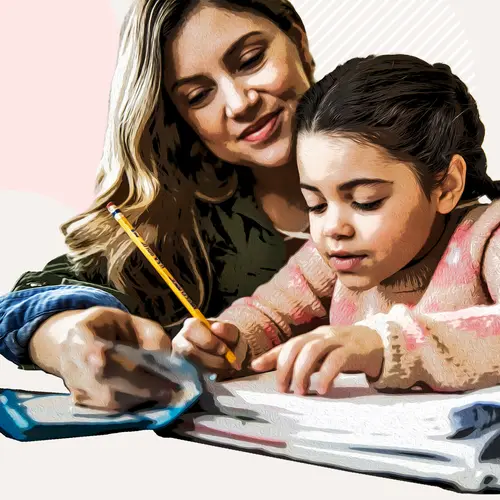About 6 million children in the U.S. have been diagnosed with attention deficit hyperactivity disorder, or ADHD. Nearly two-thirds of those kids have another mental, emotional, or behavioral disorder as well. One of those conditions could be childhood traumatic stress.
Childhood traumatic stress is the psychological reaction that children have to a traumatic event, whether it happens to them or they see it happen to someone else. These events can affect children’s brains, emotions, and behavior in the same way traumatic events can affect adults.
Sometimes, going through a traumatic event can cause real attention problems. But trauma and ADHD can be confused in diagnosis because the symptoms of trauma mimic those of ADHD.
They share several symptoms, including:
- Trouble concentrating
- Difficulty learning
- Easily distracted
- Doesn’t listen well
- Disorganized
- Hyperactive/restless
- Doesn’t sleep well
Some studies show that children diagnosed with ADHD are more likely to have had a traumatic event than children who don’t have ADHD. Scientists have also found that ADHD and childhood traumatic stress affect the same region of the brain: the prefrontal and temporal cortex, which controls emotions, impulses, and decision-making.
What Qualifies as a Traumatic Event?
Traumatic events can affect a child’s brain and behavior the same way they might affect an adult’s. Examples include:
- Serious injuries
- Life-threatening medical conditions
- Physical or sexual abuse
- Witnessing violent acts
- Neglect or abandonment
- Death of a loved one
- Natural disasters
- Car accidents
- Poverty
- Divorce
How to Tell if It’s Child Traumatic Stress
Sometimes it’s obvious if a child has been through a traumatic event. If your child was in an accident or had major surgery, you’re likely aware of the situation.
But it isn’t always so clear. Perhaps they were sexually abused or were being bullied at school. If your child shows ADHD symptoms, talk to them and ask them questions.
Don’t expect your doctor to figure it out, either. Not all pediatricians routinely ask kids about their mental health or what’s going on at home. Few screen for most types of traumatic events. Those who do ask mainly focus on depression or divorce.
If you take the time to ask when you see any of the signs, you’re more likely to uncover the trauma.
How You Can Help
If your child has been affected by trauma, your support and care can help them recover. Here are a few things you can do:
Figure out what triggers their trauma. Sometimes even a harmless activity or statement can trigger trauma. Perhaps your child witnessed violence and a particular television show was on at the time. Now, when that show comes on, they get extremely upset. Identify what has them distracted or anxious, and help them avoid those things.
Be present. Make yourself available both emotionally and physically to a child who’s been through trauma. They may behave in a way that pushes people away. Be patient. Offer encouragement, comfort, and positive attention.
Stay calm and be respectful. When your child seems overwhelmed, stay calm, and don’t raise your voice. Acknowledge their feelings. Be reassuring, but be honest, too. (Don’t make false promises, for example.) Never punish the child with physical discipline. Instead, set reasonable, clear limits, and reward good behavior.
Help them relax. Teach them slow breathing exercises or find calming music they might like. Develop a positive mantra or affirmation that they can repeat: “I am safe” or “I am loved.”
Create routines. Predictability can help kids feel more secure. Come up with a routine for meals or bedtime, and give them a heads-up before any changes to their schedule.
Give them some control. Let them make age-appropriate choices so they’ll feel some control over their life. This also may help them relax.
Get professional help. If your child’s symptoms last more than a few weeks, or if they are getting worse, you may want to connect with a child mental health counselor. They can provide more resources, like behavior therapy or medication, to get a child the help and support they need to recover from the traumatic event.
Take care of yourself. Parenting a child under this kind of stress isn’t easy. It can strain your relationships, with them or with other people. Sometimes families can feel isolated.
Also, if something traumatic happens to your child, it’s likely to affect you as well. This is called secondary trauma. It’s particularly likely if you’ve had your own trauma in the past. These tips can help you stay strong:
- Make time for things you enjoy and things that support your mental health.
- Don’t take the child’s bad behavior personally.
- Celebrate improvements in their behavior, no matter how small.
- Seek support from family, friends, or mental health professionals.

